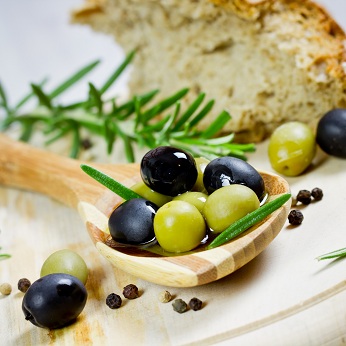Superfood alert – probiotic olives for healthy gut

date: 12/02/2014
Project: Table olive fermentation with selected s...
acronym: PROBIOLIVES
See also: CORDIS
Contact: http://www.probiolives.eu
While health-conscious individuals have traditionally looked to specially enriched fermented dairy foods for their probiotics fix, they may soon be able to choose between these and other promising food sources, such as the humble olive. Table olives are full of fibre and antioxidants; adding probiotics could offer consumers an even healthier and more nutritious appetiser.
If producers are able to upgrade olive fermentation, they could in essence produce a true superfood while supporting the olive industry in Greece, Italy, Portugal and Spain – a major employer in all four countries. This was the aim of the EU-funded project Probiolives.
The team has developed the technology for creating the new functional food, and is planning to begin producing the olives as soon as intellectual property agreements are in place.
"We have been working on producing fermented table olives with the use of probiotic bacteria isolated from the olive’s microbiota [gut flora] as starter cultures," explains project coordinator Dr Chrysoula Tassou from the Institute of Technology of Agricultural Products within Greece’s Hellenic Agricultural Organisation DEMETER (formerly NAGREF) . "If these bacteria show probiotic activity, they provide table olives with an added value in terms of health benefits."
Hunting for the perfect olive
The project team began by selecting healthy bacteria with probiotic activity from olives’ natural flora , and then moved on to creating olives that provide probiotic benefits, yet taste good at the same time. "Our concept depends on the survival of probiotic bacteria in sufficient numbers to characterise the product as probiotic," says Tassou.
An important achievement for the Probiolives project came when a significant number of different lactic acid bacteria were isolated from the olives themselves. These healthy bacteria are crucial for the formation of probiotics.
"Our progress in this area will have great impact not only for olive products, but also for other fermented foods, such as yoghurts, cheeses and pickles. The selected bacteria can be introduced in other foods as supplements," explains Tassou. "The probiotics can even be added to non-fermented foods such as fruit juices".
In this context, the isolated bacteria will also enrich the bank of probiotic cultures available for further tests on specific foods.
One particular bacterial strain, L. pentosus B281, maintained very high population levels after 120 days of fermentation, indicating the viability of scaling up the process from laboratory to industrial level.
Good for consumers and economy
When this new 'superfood' hits European shelves, it could make the EU olive industry more competitive than ever before. This is a win-win situation for industry and consumers alike.
The project’s advance of packaging technologies could also extend the olives’ shelf-life, maintaining a high probiotic population. The packaging, which can be adapted to the product, allows all desirable sensory qualities, such as appearance, smell and taste, to be maintained. This, combined with findings on olive stabilisation without the use of pasteurisation (the destruction of harmful bacteria through heating and then rapid cooling), is likely in particular benefit small olive producers, as they are often unable to cover the costs of thermal preservation processes.
